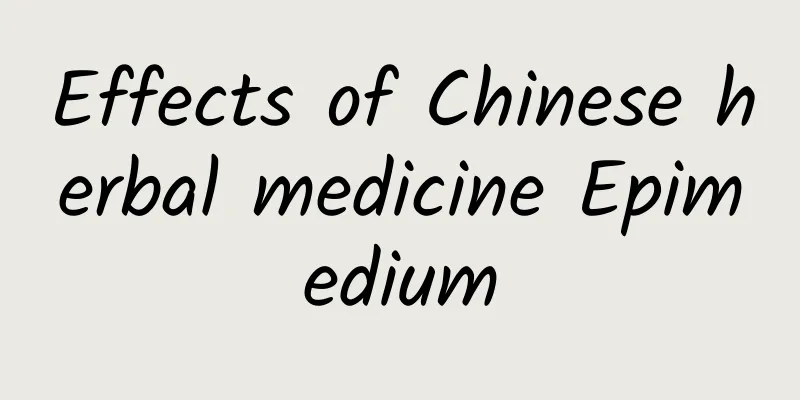What is the difference between cornus officinalis and cornus officinalis?

|
Cornus officinalis is a medicinal material with many names, such as yam meat. So what is the difference between Cornus officinalis and Cornus officinalis? In fact, Cornus officinalis is also called Cornus officinalis, and they are the same kind of medicine. Cornus officinalis is also a kind of prescription medicine when doctors prescribe it. However, since many people are not familiar with traditional Chinese medicine, they will think that it is other medicine when the doctor prescribes the medicine with a different name. In fact, there is no difference between a medicine having multiple names. Therefore, it is recommended that patients are familiar with the effects of Cornus officinalis. Cornus officinalis, also known as Cornus officinalis, taro meat, mountain meat, jujube peel, etc., is a deciduous shrub or small tree, 4-10 meters high; the bark is gray-brown; the twigs are slender cylindrical, glabrous or sparsely covered with short soft hairs; winter buds are terminal and axillary, ovate to lanceolate, covered with yellowish brown short soft hairs. The ripe fruit is used as a traditional Chinese medicine for vertigo and tinnitus, soreness of the waist and knees, impotence and spermatorrhea, enuresis and frequent urination, metrorrhagia and leukorrhea, and profuse sweating and collapse. (1) Effects on the cardiovascular system Cornus officinalis has a cardiotonic effect. Intravenous injection of Cornus officinalis injection 2-8 mg/kg can improve cardiac function, increase myocardial contractility and cardiac output, and improve cardiac working efficiency. After injection in dogs, systolic blood pressure, diastolic blood pressure, mean blood pressure and left ventricular pressure increased. Cornus officinalis injection can counteract late-stage hemorrhagic shock in rabbits and rats, increase the blood pressure of shocked animals, increase renal blood flow, and prolong the survival time of animals. (2) Impact on the immune system Different components of Cornus officinalis have different effects on the immune system. The decoction can reduce the phagocytic function of the reticuloendothelial system, inhibit the delayed-type hypersensitivity reaction caused by SRBC or DNCB (2,4-dinitrochlorobenzene), and inhibit the activation of T lymphocytes. Total glucosides of Cornus officinalis and ursolic acid can significantly inhibit the proliferation and transformation of T lymphocytes, inhibit the generation of LAK cells (lymphokine-activated killer cells) and the production of interleukin-2, and have a significant antagonistic effect on the rejection reaction caused by organ transplantation. Daily intraperitoneal injection of total glucosides of Cornus officinalis 500 mg/kg for 6 consecutive days can significantly prolong the survival time of mice after heart transplantation. The decoction has a promoting effect on humoral immunity and can accelerate the formation of serum antibodies IgG and IgM. (3) Anti-inflammatory and antibacterial The water decoction of Cornus officinalis has a significant inhibitory effect on inflammatory exudation, tissue edema and granulation tissue hyperplasia caused by inflammatory substances such as xylene, egg white and acetic acid, but has no significant effect on the PGE content in the swollen tissue. It can reduce the vitamin C content in the adrenal glands of rats and alleviate adrenal cell damage. This suggests that its anti-inflammatory mechanism is related to enhancing pituitary-adrenal cortex function and has no obvious inhibitory effect on PGE synthesis and release. Cornus officinalis has a strong inhibitory effect on Staphylococcus epidermidis; it also has inhibitory effects on enterococci, Staphylococcus aureus, Shigella dysenteriae, etc. There is no difference between Cornus officinalis and Cornus officinalis, except that the medicinal properties are different; This medicine has powerful curative effects. Patients should also observe their physical symptoms when taking it. Some patients cannot eat Cornus officinalis, such as people with the phenomenon of Mingmen fire, and people with dampness and heat in the body must avoid taking the medicine, otherwise it will aggravate the disease and cause damage to the body in this aspect, which will harm health. |
<<: What are the medicinal uses of Cornus officinalis
>>: What does Cistanche deserticola taste like?
Recommend
What is the medicinal value of swallowtail palm
There are many nourishing foods in life, which ha...
The efficacy and function of water golden phoenix
Traditional Chinese medicine culture is profound ...
While others are busy killing monsters and leveling up, I am looking for food in "Black Myth: Wukong"!
Author: Fluent Dear "destined people"! ...
Taboo of Nine Dragons
I don’t know if you have seen the Nine-dragon wor...
"Beauty" and health can coexist
In reality, many people like to appreciate flower...
These 4 overnight dishes are too dangerous. It is best to throw them away if you can't finish them.
It is said that "thrift is a traditional vir...
Mistaking cancer for a cold, a 95-year-old patient regrets fatal negligence
Recently, a female patient born after 1995 in Sha...
Megan's effects and functions
There are many common Chinese medicinal materials...
Why does the pink muhly grass, a popular internet celebrity from abroad, amaze the world?
Recently, the pink muhly grass has entered its be...
It’s terrifying to think about it. Why are there so many coincidences in nature and mathematics?
The sun rises and sets, the grass grows and the b...
The efficacy and function of sour fruit vine
Recently, major TV channels have launched various...
The efficacy and function of Luoqundai
Luoqundai is a very common Chinese medicine. Alth...
The role of lavender
The first time you come into contact with lavende...
The benefits of drinking Oriental ginseng in water
Oriental ginseng is a top-grade tonic for the bod...









